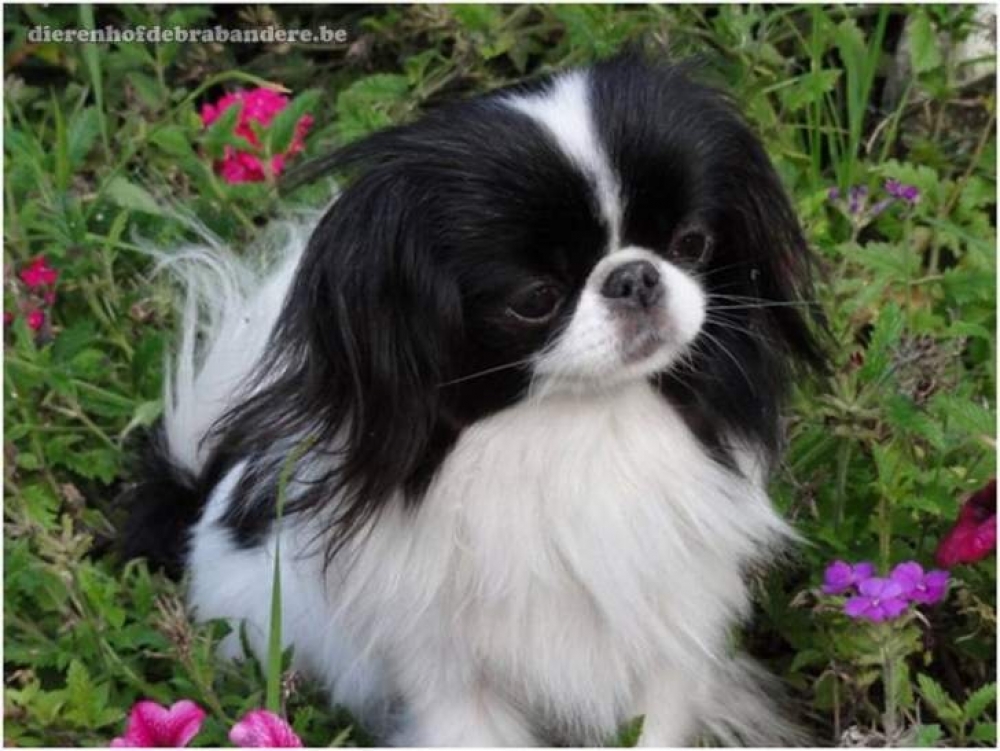The Japanese Chin dog breed originated in Asia, where they have been valued as companions for over a thousand years. They were a beloved member of the Chinese and Japanese imperial courts, and it was in Japan that their distinctive appearance was developed.
History
The Japanese Chin is an ancient breed that probably originated in the Chinese imperial court. It was highly prized and often given as a gift to envoys from other countries, and it was probably as a gift to the Emperor of Japan that it found its way to that island nation that gave it its name. In Japan, the Chin was not considered a dog (inu) but a separate creature (chin). There, it was probably crossed with small spaniel-like dogs and eventually got the appearance it has today.
The Japanese Chin remained unknown to the outside world until 1853 when Commodore Matthew Perry sailed into the port of Uraga near Edo - today's Tokyo - and introduced Japan to international trade. The Japanese Chin became a popular commodity and many were imported into Britain and the United States.
Among the first American owners of the breed were President Franklin Pierce, Jefferson Davis, then Secretary of War, and Perry's daughter, Caroline Perry Belmont. They became popular with people of wealth and nobility. In the United States, the Japanese Chin was known as the Japanese Spaniel and retained that name until 1977.
Personality
The personality of the Japanese Chin is a true indicator of the depth of character these dogs possess. In general, it is a cheerful and charming dog that is affectionate and intelligent. He is talkative, but not barky. People with a Japanese Chin say that their dogs like to "sing" and will chatter to announce the arrival of guests or strangers.
Japanese Chin are so sensitive to their surroundings and the emotions of their people that they have been known to form their personalities around them. If he lives in a house that is quiet and sombre, the Japanese Chin will be reserved. If he lives in an active house, he will do his part to keep the action lively.
Known disorders




